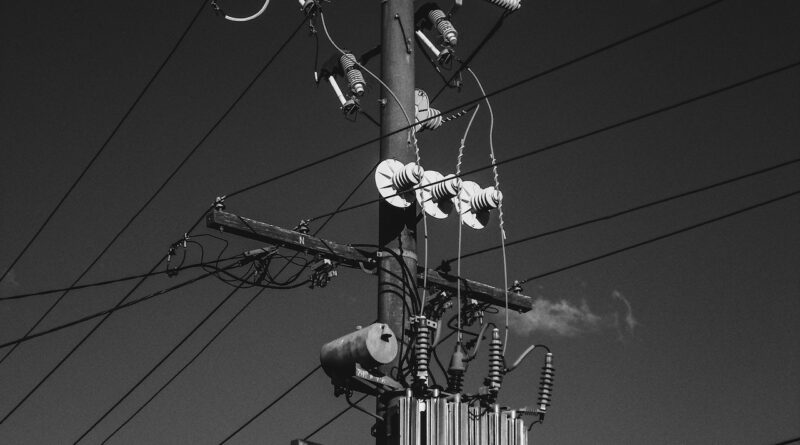Safety Assurance: How Electrical Safety Audits in Faridabad Protect You
Introduction
In today’s fast-paced world, electricity plays a crucial role in powering our daily lives. However, it is important to ensure that electrical systems are safe and reliable to prevent accidents, injuries, and property damage. This is where electrical safety audits come into play. In this article, we will explore the significance of electrical safety audits in Faridabad, India, and how they protect individuals and organizations.
Table of Contents
- Importance of Electrical Safety Audits
- Understanding Electrical Safety Regulations
- The Process of Conducting Electrical Safety Audits
- Identifying Potential Hazards
- Assessing Electrical System Performance
- Evaluating Compliance with Safety Standards
- Mitigating Risks and Implementing Safety Measures
- Training and Education for Electrical Safety
- Benefits of Regular Electrical Safety Audits
- Enhancing Workplace Safety and Productivity
- Avoiding Legal and Financial Consequences
- Promoting a Safety Culture
- Building Trust and Confidence
- Hiring Professional Electrical Safety Audit Services
- Frequently Asked Questions (FAQs)
Importance of Electrical Safety Audits
Electrical safety audits are crucial to identify potential hazards, evaluate compliance with safety standards, and ensure the proper functioning of electrical systems. These audits help in reducing the risk of electrical accidents, ensuring the safety of individuals, and protecting valuable assets. By conducting regular safety audits, individuals and organizations can proactively address safety concerns and maintain a secure environment.
Understanding Electrical Safety Regulations
Electrical safety regulations outline the standards and guidelines that need to be followed to ensure safe electrical installations and operations. These regulations are designed to prevent electrical accidents, electrical fires, electric shocks, and other hazards. In Faridabad, electrical safety audits are conducted in accordance with the regulations set by local authorities and regulatory bodies to ensure adherence to safety protocols.
The Process of Conducting Electrical Safety Audits
Electrical safety audits involve a systematic evaluation of electrical systems, equipment, and practices. The process typically includes the following steps:
- Inspection: The auditor inspects the electrical infrastructure, including wiring, electrical panels, equipment, and safety devices.
- Documentation Review: Relevant documents such as electrical system designs, maintenance records, and safety procedures are reviewed to ensure compliance.
- Testing and Measurement: Testing and measuring equipment are used to assess the electrical performance, including voltage levels, grounding, and insulation resistance.
- Risk Assessment: Potential hazards are identified, and the level of risk associated with each hazard is assessed.
- Compliance Evaluation: The electrical system is evaluated against safety standards and regulations to identify any non-compliance issues.
- Recommendations: Based on the findings, recommendations are provided to mitigate risks and improve the overall safety of the electrical system.
Identifying Potential Hazards
During an electrical safety audit, potential hazards are identified to prevent accidents and injuries. These hazards may include faulty wiring, inadequate grounding, overloaded circuits, improper use of electrical equipment, and non-compliance with safety standards. By identifying these hazards, corrective actions can be taken to eliminate or minimize the risks associated with them.
Assessing Electrical System Performance
The performance of the electrical system is assessed during safety audits to ensure its reliability and efficiency. This includes evaluating voltage levels, electrical load capacity, insulation resistance, and the condition of electrical equipment. By assessing the performance, any issues or inefficiencies can be identified and addressed promptly, thus improving the overall safety and functionality of the system.
Evaluating Compliance with Safety Standards
Electrical safety audits also focus on evaluating the compliance of electrical systems with safety standards and regulations. This ensures that the installations and practices adhere to the recommended guidelines, reducing the chances of accidents and ensuring the safety of individuals and properties. Non-compliance issues are identified, and corrective actions are recommended to bring the system in line with the required safety standards.
Mitigating Risks and Implementing Safety Measures
One of the primary goals of electrical safety audits is to mitigate risks associated with electrical systems. Based on the findings of the audit, recommendations are provided to eliminate or reduce the identified risks. This may involve implementing safety measures such as upgrading electrical equipment, improving grounding systems, installing protective devices, and conducting employee training programs. By taking these measures, the overall safety of the electrical system is enhanced.
Training and Education for Electrical Safety
Electrical safety audits emphasize the importance of training and education for individuals working with electrical systems. Training programs are conducted to educate employees about safe electrical practices, hazard identification, emergency response procedures, and proper use of electrical equipment. By increasing awareness and knowledge about electrical safety, individuals can make informed decisions and contribute to a safer working environment.
Benefits of Regular Electrical Safety Audits
Regular electrical safety audits offer several benefits to individuals and organizations. Some of the key advantages include:
Enhancing Workplace Safety and Productivity
By ensuring the safety of electrical systems, workplace safety is significantly enhanced. Employees can work with peace of mind, knowing that their environment is free from potential electrical hazards. This, in turn, improves productivity and reduces the chances of work-related accidents and injuries.
Avoiding Legal and Financial Consequences
Compliance with electrical safety regulations is essential to avoid legal penalties and financial liabilities. Regular safety audits help identify non-compliance issues in advance, allowing organizations to rectify them and avoid potential legal and financial consequences.
Promoting a Safety Culture
Conducting regular safety audits promotes a safety culture within an organization. It demonstrates a commitment to the well-being of employees and the protection of valuable assets. This instills a sense of responsibility among individuals and encourages them to prioritize safety in their daily activities.
Building Trust and Confidence
Electrical safety audits provide assurance to stakeholders, clients, and customers that an organization prioritizes safety. This helps build trust and confidence in the organization’s operations and enhances its reputation in the industry.
Hiring Professional Electrical Safety Audit Services
To ensure comprehensive and accurate electrical safety audits, it is advisable to hire professional audit services. These professionals have the expertise, knowledge, and experience to conduct thorough assessments and provide actionable recommendations. By engaging professionals, individuals and organizations can have peace of mind knowing that their electrical systems are in safe hands.
Frequently Asked Questions (FAQs)
- What is the purpose of an electrical safety audit? An electrical safety audit aims to assess the safety and reliability of electrical systems, identify potential hazards, and ensure compliance with safety standards.
- How often should electrical safety audits be conducted? The frequency of electrical safety audits depends on various factors such as the type of electrical system, its age, usage, and industry-specific regulations. It is recommended to conduct audits at least once a year or whenever significant changes are made to the electrical system.
- Who can conduct an electrical safety audit? Electrical safety audits should ideally be conducted by qualified professionals with expertise in electrical systems and safety regulations.
- Can electrical safety audits prevent accidents? While electrical safety audits cannot guarantee the prevention of all accidents, they significantly reduce the risks associated with electrical systems by identifying hazards and implementing appropriate safety measures.




